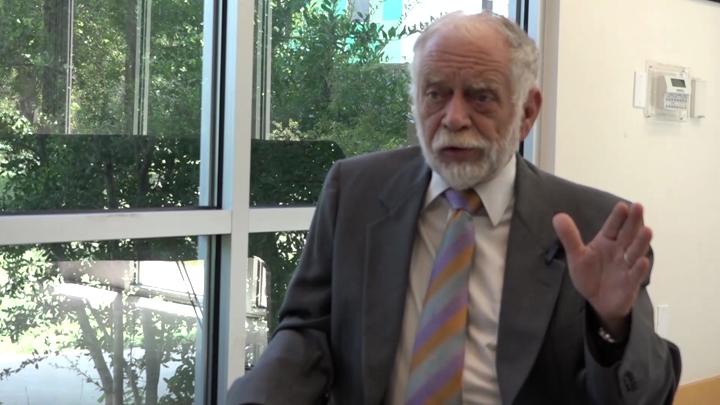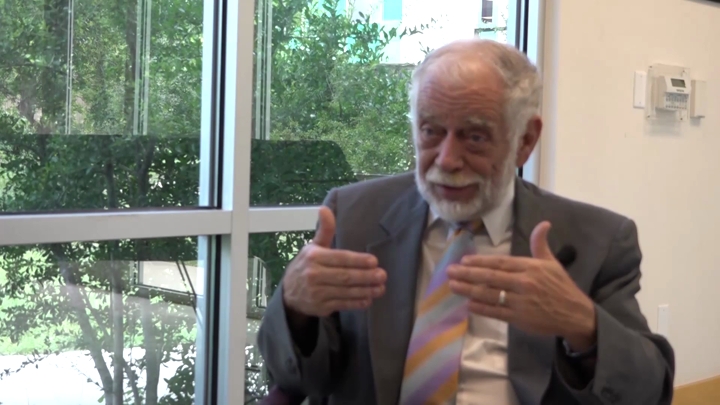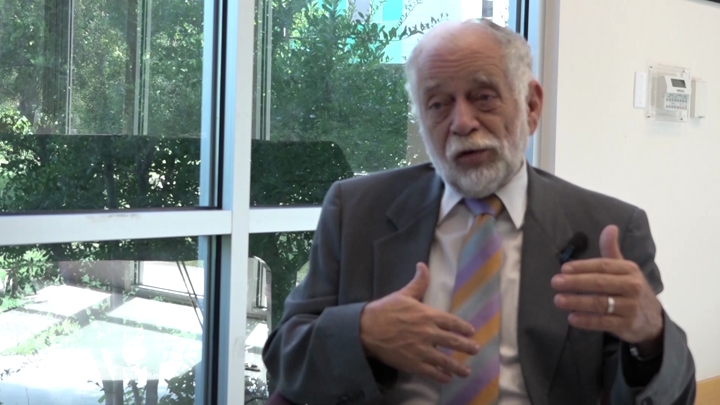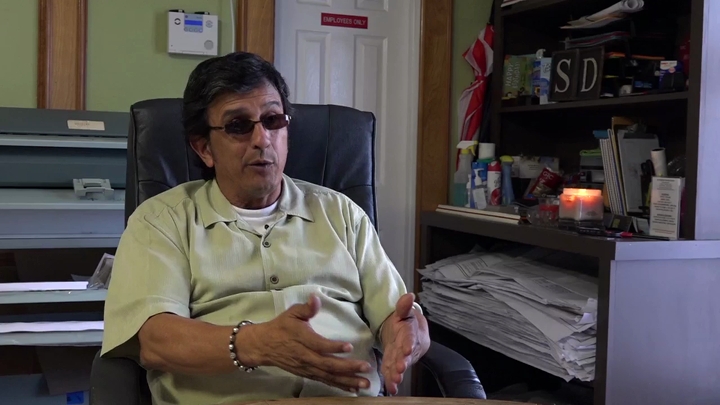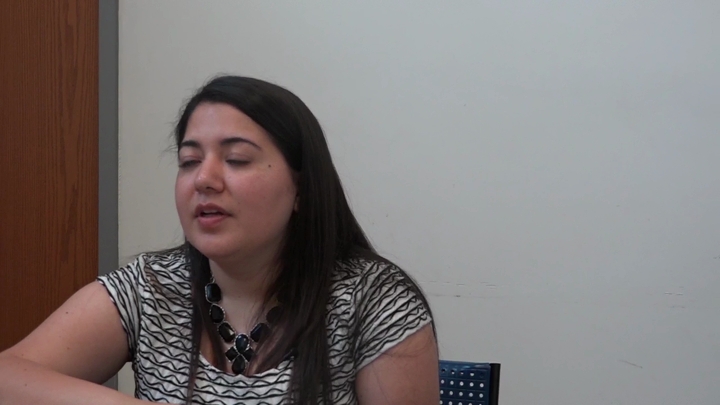Harrington / Cases the Texas Civil Rights Project Take On
sign up or sign in to add/edit transcript
Harrington : That’s the thing with the farm worker movement, right. As I was saying earlier about protecting people during the stripes that kind of thing. We did a privacy case that was a major victory. It was with the Texas state employees union, when that MHMR System- mental health mental retardation- polygraphing all of its employees. They were retaliating against the union and keeping it from organizing. So we worked with them and were able to stop that and a major victory on the right of privacy. So that was always a priority for me to work with organizing because that also keeps the change in tact. If you just file a lawsuit in a vacuum, without a community group then there is no guarantee that that victory will stay intact. If it is something that belongs to that group then there will not be a retrenchment because that’s part and parcel of their effort and their movement. I think that is another very key reason to work with community groups. It keeps the change institutionalized. Arionus: Can you speak to you more about the work you did with organizations? I know you said you worked with for disability rights and privacy but what other organizations? Harrington : I worked with any case you can think of. See, I taught last call for 27 years and constitutional litigation for 27 years. As an adjunct one day a week. I came to realize that we litigated every kind of case that I was teaching in the lobby ask. So it covers the whole gamut-police cases, privacy cases, disability cases, gender discrimination, employment discrimination, voting rights, everything. All the peculiarities that can come up in the law. We did every issue. In fact, when I realized this was when we represented Round Rock high school students when they walked out. There was a walkout about six or seven years ago over immigration issues. There were walkouts across the country. Of course, typically the Round Rock administration kicked the kids out of school and charge them with criminal trespass, 200 of them. We got involved in that. And in the end, we win. But in the process what they did was file in criminal court which means you cannot do anything in civil court with civil rights until the criminal case is over. So that criminal case could have gone on for year or two years. If you do not file your civil rights case in two years then you lose it. But it was also a way of stymieing us. There is an exception, a very narrow exception that you can bring a civil rights case while a criminal case is pending. A very narrow exception. We tried it. And it worked. And then they settled. It was the last case that completed the book. We had done every case in the book. And that was the last wine and harvest wine. I thought never in my life would I do one of those cases. It is called the Younger doctrine, and I did it. Then I realized I have now done every case in the book. And that was probably bound to happen after 25 years, right.The civil rights project. But it does give you the variety of cases, which was virtually everything. But the priority was always to try to tie it in to the community. Because as a project manager we ended up rejecting 95% of the cases that come to us. We don’t have the resources typically, and there’s cases that we would not do anyway. We either do not have the skill for or their family service cases. So it was a priority to pick the cases that always had the greatest impact. And part of measuring the greatest impact is what they would do to strengthen the community. Arionus: Are there cases that stand out to you? You worked there for 25 years are there of the cases that you remember that you think were particularly impactful for the community or losses that had this not happened it would have been great for justice? Harrington : Yes, you always cut both ways. You have great victories and you have great losses. One of the great personal victories for me where the farm worker cases because I have lived with the farmworkers for so long. And to see that change for organizing and litigation and benefited so many people. It brought millions and millions of dollars to the valley. It brought Manny into people’s pockets who would get injured at work and to get paid and not to depend on charity. The same thing when they lost their job at the end of the season. They would get paid like anybody else would. If you’re doing construction and you get laid off at the end of the season, you get unemployment. It is designed to carry you over until you get a job. What would happen if you don’t have Worker’s Comp and you get hurt if you don’t have an employment? you’re depending on churches, and your neighbors, and family and that kind of stuff. But these lawsuits not only help people individually but they brought in enormous amounts of money into the valley because it is coming from outside the valley. Because all of the unemployment cases and workers comp cases are basically happening more people are migrating. So it really infused a lot of money. But academically for a lawyer the privacy case was really important to start doing the polygraph. The court established under our state constitution that there is a right of privacy, a fundamental right of privacy. That does not exist under the federal Constitution. But it exist under the state constitution and privacy of course a very important right.
| Interview | Interview with Jim Harrington |
| Subjects | Citizenship › Voting and Voter Registration |
| Citizenship › Political Rights | |
| Work › Labor Unions | |
| Community Organizations | |
| Community Organizations › Civil Rights Organizations | |
| Court Cases | |
| Police and Law Enforcement | |
| Gender and Sexuality | |
| Student Activism › School Walkouts | |
| Medicine and Health › Disabilities | |
| Tags | MHMR |
| Texas Civil Rights Project | |
| Round Rock High School | |
| sign up or sign in to add/edit tags | |
| Interview date | 2016-06-13 |
| Interview source | CRBB Summer 2016 |
| Interviewees | Harrington, Jim |
| Locations | Austin, TX |
| Duration | 00:06:58 |
| Citation | "Cases the Texas Civil Rights Project Take On ," from Jim Harrington oral history interview with , June 13, 2016, Austin, Civil Rights in Black and Brown Interview Database, https://crbb.tcu.edu/clips/5507/cases-the-texas-civil-rights-project-take-on, accessed February 26, 2026 |


